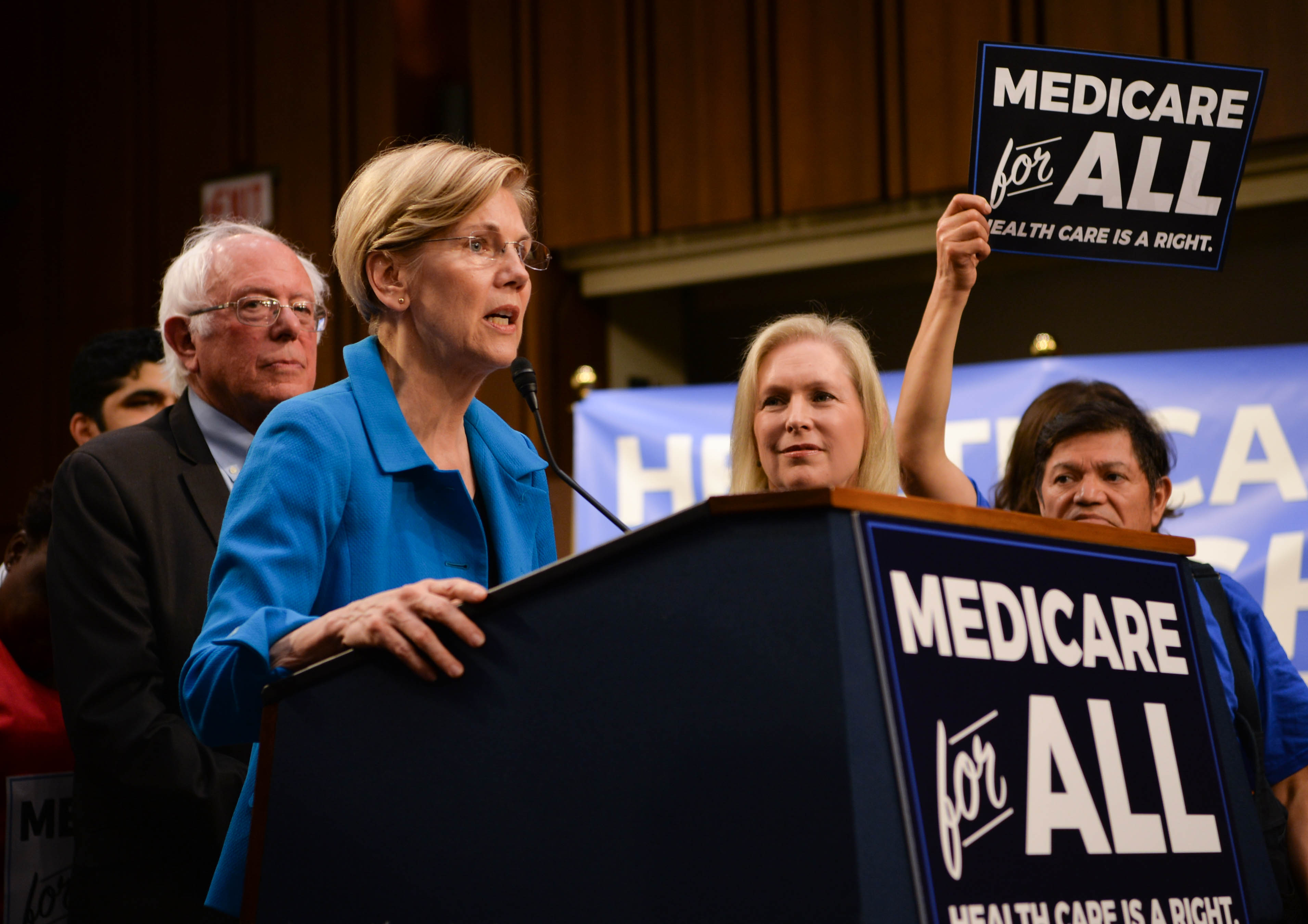When people on the left criticize how President Obama handled the passage of the Affordable Care Act, they often say that he was too anxious to negotiate with Republicans, who had demonstrated that they wouldn’t support a Democratic plan, no matter what.
But having watched that whole process in congress very closely, I can tell you that it wasn’t Republicans that Obama had to negotiate with on health care reform—it was Democrats. Even with the 60-vote majority in the Senate that lasted for about five months in the 111th Congress, Democrats had to deal with colleagues like Joe Lieberman, Ben Nelson, and Blanche Lincoln. One defection was all it would take to kill the bill.
If a Democrat wins the presidency in 2020, they’ll be facing even tougher odds. Under the most optimistic projections, Democrats aren’t likely to come close to a 60-vote majority. That is why we’re hearing a lot of talk about ending the filibuster. The only presidential candidate to unequivocally state their support of that idea is Elizabeth Warren.
Meanwhile, there are at least five senate Democrats who have been clear that they will not support ending the filibuster: Joe Manchin, John Tester, Kyrsten Sinema, Jackie Rosen, and Bob Casey. There could be more, but I highlighted these five because they were either elected or re-elected in 2018 and, barring unforeseen circumstances, will be in office for the next four years. If they stand by their statements, it ensures that the filibuster will be alive and well for the entire first term of the next president.
If a Democrat is elected president in 2020, there will only be three paths to getting anything accomplished.
- Peel off a few Republican votes,
- Use the budget reconciliation process, as Republicans did with tax cuts,
- Maximize the federal bureaucracy and the use of executive orders.
I recognize that the one that will get the most pushback is about peeling off Republican votes. While it is unlikely, we should never take the pressure off Republicans to remember how our democratic republic is supposed to work.
I hate to be such a Debbie Downer, but what I’ve just described is why it is ridiculous that the Democratic primary is being consumed right now by a discussion about Medicare for All. If Sanders or Warren become the next president, the filibuster alone will kill it. But even if that weren’t the case, there are a lot of Democratic senators, including progressives like Sherrod Brown, who don’t support it.
I have no idea why Warren took up that cause. If anything, it seems to have hurt her politically. In contrast, Hillary Clinton did a great job of articulating the goals of most Democrats when it comes to health care.
? @HILLARYCLINTON ENDORSES @JOEBIDEN PUBLIC OPTION APPROACH OVER M4A
Just listen. Almost word for word, she supports the Biden plan. Wake up folks. pic.twitter.com/GtkNkiqzEd
— Chris D. Jackson (@ChrisDJackson) November 7, 2019
Contrary to what Jackson claimed, Clinton didn’t just describe Biden’s plan, but the goals embraced by most Democrats. What struck me is that it also happens to be what Elizabeth Warren said about health care when she first got in the presidential race.
“How do we get universal coverage, Medicare for all? Lots of paths for how to do that,” Warren said. “But we know where we are aiming. And that is, every American has health care at a price they can afford. And that the overall costs in the system are held as low as possible.”
Pressed to be more specific, she added: “There are multiple bills on the floor in the United States Senate. I’ve signed onto Medicare for All. I’ve signed on to another one that gives an option for buying in to Medicaid. There are different ways we can get there. But the key has to be always keep the center of the bulls-eye in mind. And that is affordable health care for every American.”
Given the structural challenges Democrats will face—especially in the senate—there is no need to be divisive about health care. What voters want to know is that Democrats have fought against Republican efforts to gut Obamacare and stand for “affordable health care for every American.” Within that framework, they can lay out many paths to get there and discuss the merits and drawbacks to each one. But to make Medicare for All a litmus test about whether candidates have been corrupted by private insurance—as Sanders and Warren have suggested—is a deal-breaker.



